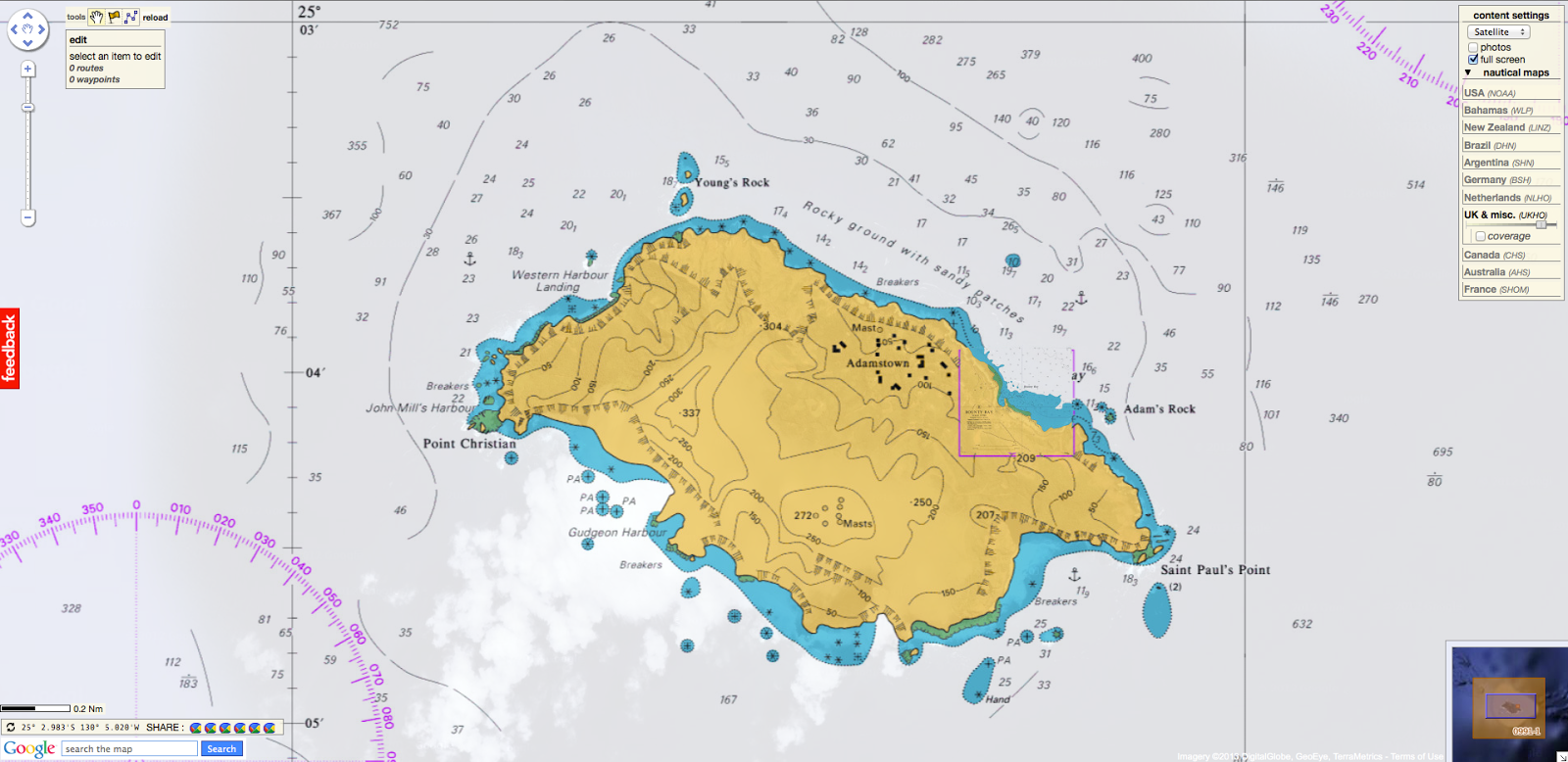Ruling of the Week 2015.8: Old Jersey and Pitcairn Island
For today's ROTW, I set out looking for a ruling dealing with some far off and preferably warm location. Turns out that, with the exception of coastwise transit issues, there are no Customs and Border Protection rulings involving Pitcairn Island or any of several Pacific Ocean microstates including Tuvalu, Niue, and Kiribati.
What I did find is an interesting question about the country of origin marking for products of the Bailiwick of Jersey Island, Channel Islands. The ruling is HQ 561938 (Mar. 18, 2002). For those of you who may not know, Jersey is an island off the coast of Normandy, France. It is an independent international actor and not part of the U.K. although the U.K. is responsible for its defense and external relations. Also, the Queen is the Head of State in her capacity as "the Crown in Right of Jersey." It is, according to the U.S. Department of State, a "Crown Dependency" along with the Isle of Man and the Bailiwick of Guernsey.
So, what we know is that it is geographically and politically close to the U.K. It is politically distinct from the U.K.; but, it is not fully independent. That raises a question of how goods that originate in Jersey are to be marked when imported into the U.S.
Here, without additional comment, is the answer according to U.S. Customs and Border Protection:
Next, on to Cueta and Mellila, little bits of Spain stuck in Morocco.
 |
| Pitcairn Island |
What I did find is an interesting question about the country of origin marking for products of the Bailiwick of Jersey Island, Channel Islands. The ruling is HQ 561938 (Mar. 18, 2002). For those of you who may not know, Jersey is an island off the coast of Normandy, France. It is an independent international actor and not part of the U.K. although the U.K. is responsible for its defense and external relations. Also, the Queen is the Head of State in her capacity as "the Crown in Right of Jersey." It is, according to the U.S. Department of State, a "Crown Dependency" along with the Isle of Man and the Bailiwick of Guernsey.
So, what we know is that it is geographically and politically close to the U.K. It is politically distinct from the U.K.; but, it is not fully independent. That raises a question of how goods that originate in Jersey are to be marked when imported into the U.S.
Here, without additional comment, is the answer according to U.S. Customs and Border Protection:
For country of origin marking purposes, colonies, possessions, or protectorates outside the boundaries of the mother country are considered separate entities. Section 134.45(d), Customs Regulations (19 CFR 134.45(d)), states that the name of the colony, possession of protectorate shall usually be considered acceptable marking. However, when the name is not sufficiently well known to insure that the ultimate purchasers will be fully informed of the country of origin, or where the name appearing alone may cause confusion, deception, or mistake, clarifying words may be required. In such cases, the Commissioner of Customs shall specify the additional wording to be used in conjunction with the name of the colony, possession, or protectorate.
With regard to the Bailiwick of Jersey, Channel Islands, Customs has issued Treasury Decision (T.D.) 68-292(2), dated November 22, 1968, which states that, "[s]ince the States of Jersey, Channel Islands, attached to the Crown of England, are not a part of the United Kingdom or Great Britain, the marking "Made in Jersey, British Isles" constitutes acceptable country of origin marking." Similarly, T.D. 73-106, dated April 13, 1973, held that the marking, "Made in Guernsey, British Isles" was acceptable country of marking for goods produced on the island of Guernsey, Channel Islands. The phrases, "Manufactured in Jersey, British Isles," "Product of Jersey, British Isles," "Made in the British Isles" or "Made in the United Kingdom" would also be acceptable for purposes of 19 U.S.C. 1304.I feel that the remaining descendants of the HMS Bounty should seek a CBP ruling on something, just for the heck of it. Apparently, they sell honey, soap, and honey soap. If you happen to see this, would represent you on a country of origin question just for the fun of it.
Next, on to Cueta and Mellila, little bits of Spain stuck in Morocco.


Comments
Thank you for the blog.